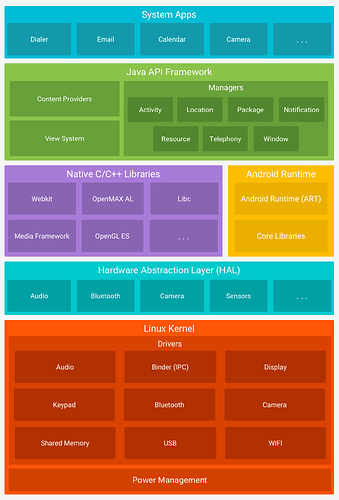We use different technology merge it together above linux kernel
and call it a distribution,but google took a another approach it’s the android stack
It’s completely different steps were everything works together very well
however my point here how to run android on my arch linux distribution natively
I disgree if you said the waydroid ![]()
waydroid is poor cheap piece of unworthy software that fill a place it didn’t belong into
god, I hate waydroid to death
I disagree if you said qemu ![]()
qemu is excellent choice ofc but here what happens
I’ve tried android x86_64 last build but it never booted because
it has it’s own kernel build that has been emulated with no nvidia drivers
that never works on my system
another bootable android system is Bliss OS but my cpu doesn’t have avx support
The only option is to build android AOSP
google made it a nightmare even to compile that. and ran it above qemu+kvm
How, how that we have something smart like wine with it’s own prefix and environmental clever works
But not android that actually built above linux kernel, there is no single developer who thought
about build similar project to wine that sandbox android the right way
to run native on a standard linux distribution.
